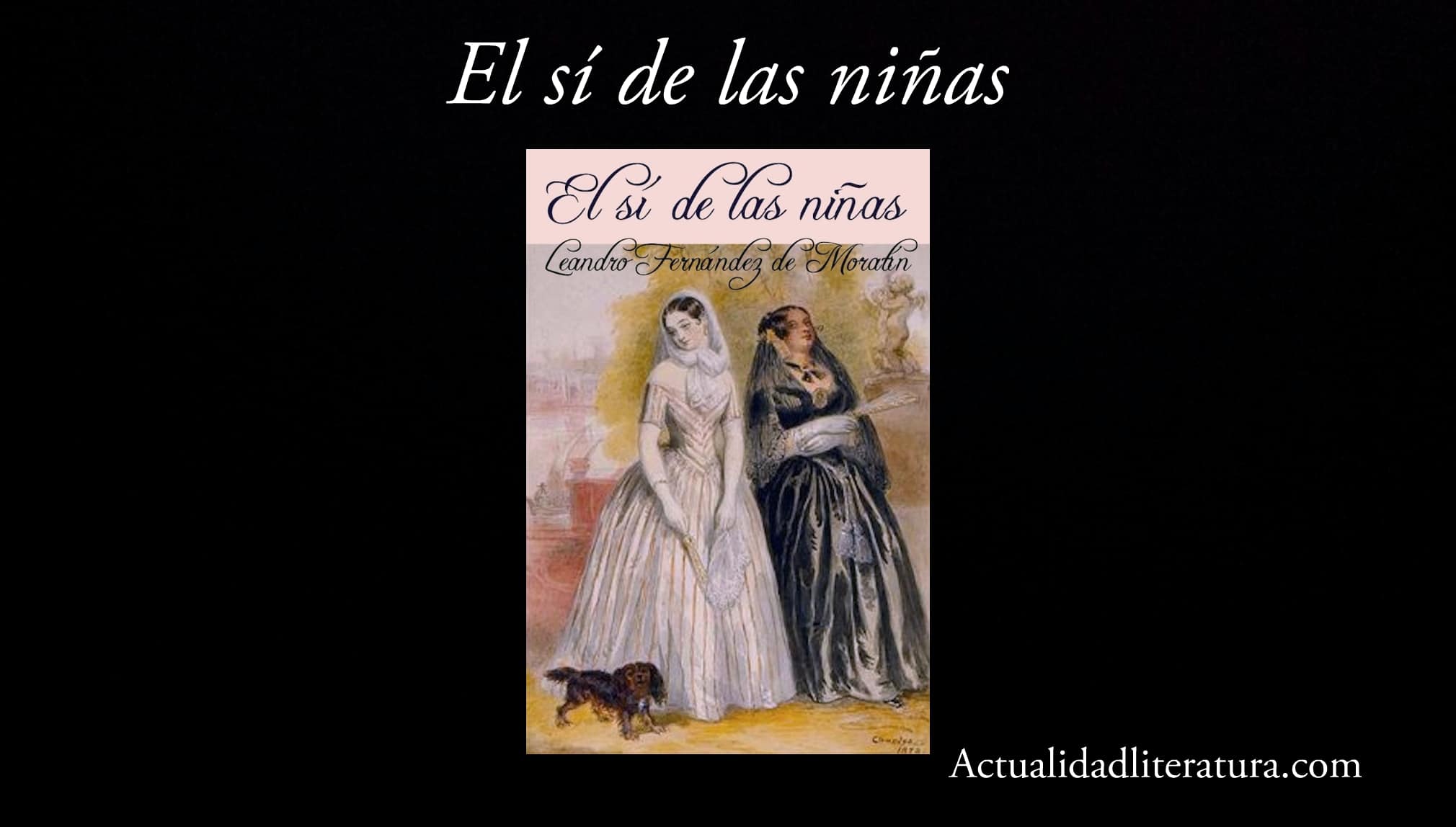
Leandro Fernandez de Moratin.
The yes of the girls It is the most important theatrical comedy of Spanish neoclassicism. Therefore, it represents the most successful montage on the boards of the entire Iberian Peninsula during the 24th century. This piece was premiered on January 1806, 37.000 in Madrid. In total, calculations estimate the attendance of some XNUMX spectators throughout seven uninterrupted weeks at the La Cruz Theater.
Along with the impressive performance at the box office, the title also became an editorial phenomenon. So much so that a year before its premiere, at least two editions were already circulating. Also, in 1806 several additional sets of copies were printed. both in Spain and in nations such as France and Italy. This allowed several companies to advance their own assemblies. In fact, it was even done without notifying the author.
Leandro Fernández de Moratín: the mastermind
Leandro Fernandez de Moratin He is one of the most influential Spanish playwrights of the last centuries and a reference figure within the Castilian Enlightenment. He was born in Madrid on March 10, 1760, into a noble family from Asturias. What's more, his father was the poet Nicolás Fernández de Moratín. This represented a cardinal stimulus to enter the world of letters.
During his childhood and adolescence, Leandro's fragile state of health made him extremely shy and withdrawn. For this reason, the books became his refuge and his window to know the world. Eventually, his own writings became the way to show and celebrate his existence to the world.
The playwright of Spanish neoclassicism
An outstanding poet and travel writer, Fernández de Moratín found his favorite means of expression in dramaturgy. The author opted for comedy, a rather risky subgenre for that time. And yes, we speak of close times chronologically with the end of the Spanish Golden Age. Additionally, the classical period had filled the stage with (mostly) dramatic pieces.
Humor as a reflective resource
Thanks to his originality and determination, the Madrid playwright went down in history as the author of the most representative pieces from the late XNUMXth and early XNUMXth centuries. In the same way, he dared to theorize about the importance of making the public reflect through laughter.
On the other hand, Fernández de Moratín showed a predilection for simple and everyday acts. Because - in their opinion - beyond being entertaining and fun, they leave lessons to analyze and learn. Like many playwrights of predecessor times, he understood the theater as a show with an educational and moralizing function.
Simplicity on stage
The playwright perfectly applied the neuralgic theatrical postulates of the Enlightenment: simplicity and unity, above all. Where the diegesis and the passing of the "real" hours are similar, within a specific time. Therefore, ellipsis or intervals occur during scene changes.
That is, all actions occur in a single space. Dialogues and actions overlap the sets and special effects. There, its characters respond (or seek to respond) to the designs of reason. Therefore, any superstitious approach (synonymous with ignorance for the author) or entirely religious is dismissed.
The yes of the girls, a controversial work ahead of its time

The yes of the girls.
You can buy the book here: The yes of the girls
All the style features described in the previous two paragraphs are observable in The yes of the girls. In consecuense, part of the most conservative estates of Madrid society expressed discomfort at the ideas expressed by the characters of this piece. Although, when it was released there was no king in Spain or time to censor a work that appeased the masses.
Prohibition
In 1815 Napoleon's invading army was defeated and Ferdinand VII regained his throne. Then, the inquisition fixed its eyes on the writings of Fernández de Moratín. The result: the ban of its most emblematic pieces: The yes of the girls y The prude. Both, despite not openly opposing Catholic dogmas, did question the power of the family over young people.
True love
Specifically, The yes of the girls speak out against the habit of marrying young women to older men, overlapping economic interests. This problem is criticized between the lines and criticized for the number of unhappy unions and dysfunctional marriages. As well as the lack of offspring because they are gentlemen without the physical ability to procreate.
True love, according to the way of thinking of the more traditional families portrayed in the plot, is nothing more than nonsense. In other words, a useless and impractical childhood fantasy in the real world. For more inri —of the ecclesiastical sector—, Fernández de Moratín points to the clergy as a moral partner in this aberration.
The plot
Don Diego is a wealthy 59-year-old gentleman who has fallen in love with Doña Francisca, a maiden of just 17 springs. In the midst of a passionate outburst, he asks the young woman's mother, Doña Irene, to allow him to marry her daughter. This proposal seems fantastic to him the progenitor, a widow with three marriages in tow and 21 aborted pregnancies.
Evidently at that time such marriages meant ensuring the future of an entire family. But Doña Francisca is in love with another man: Don Carlos (her fiancé's nephew). However, neither she nor her lover dare to contravene the wishes of the elders. Accordingly, they resign themselves to moving on with their lives destined for unhappiness and suffering.
The yes of the girls: the triumph of love and reason

Phrase by Leandro Fernández de Moratín.
Written in prose and with short and precise dialogues —except for some lengthy expositions necessary— the work leaves a pretty clear moral. It indicates: When reason prevails over passion, happiness is guaranteed for everyone involved. Even in unexpected ways.
Based on this premise, the end result allows the triumph of love in the best style of fairy tales "… and they lived happily ever after". Although Fernández de Moratín expresses that in order to reach these “mature” resolutions, it is necessary to think with the mind and not with the heart.
It sounds very attractive, and the moral they draw at the end is simply divine. Writing about these issues during that century meant an act of immeasurable courage, the writer ran the minimum risk of being censored, and maximum of being killed or tortured. Excellent article.
-Gustavo Woltmann.